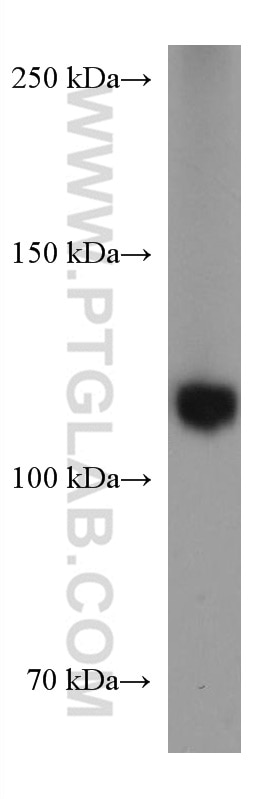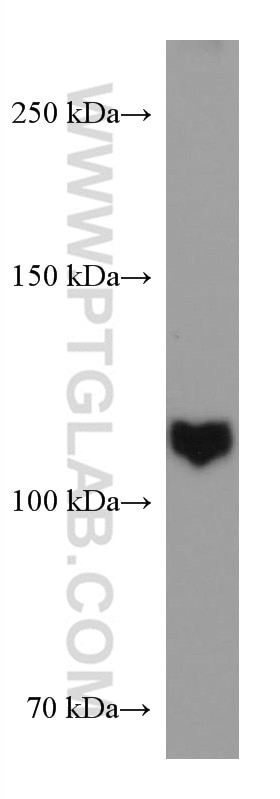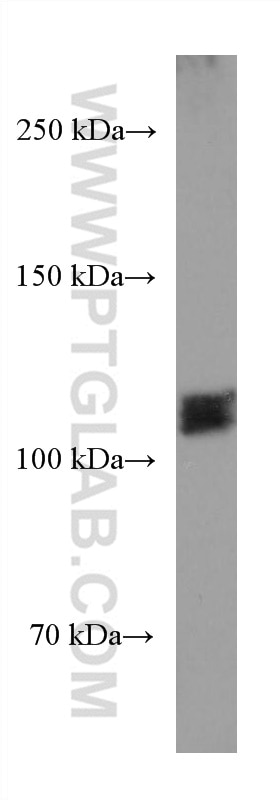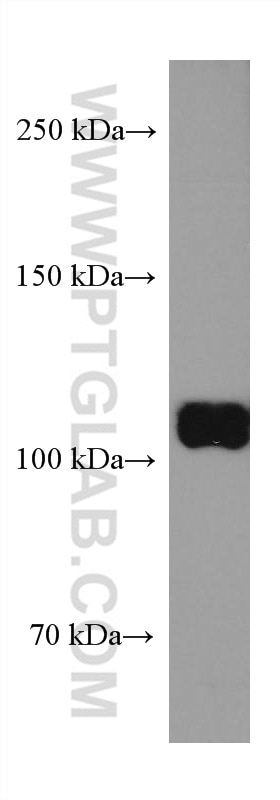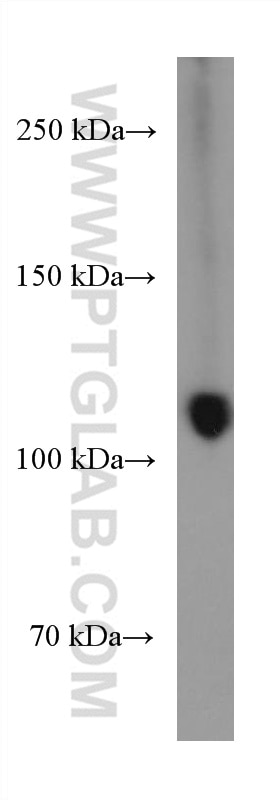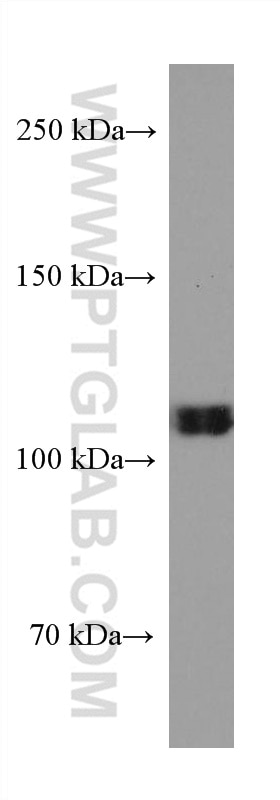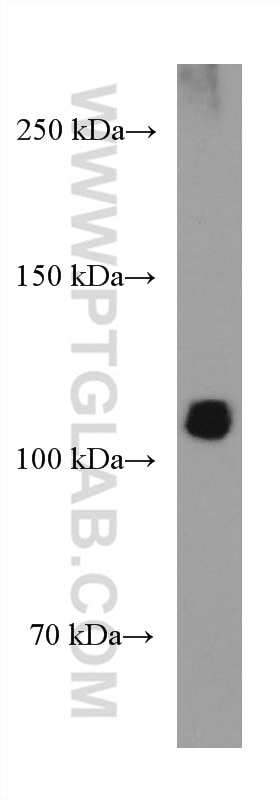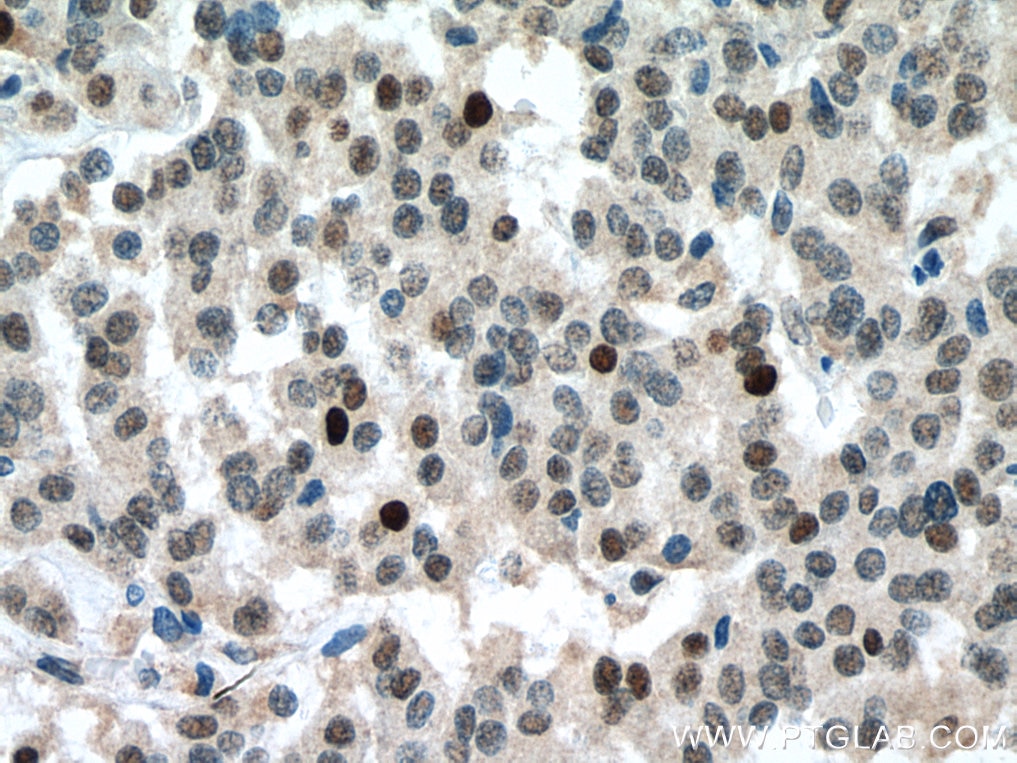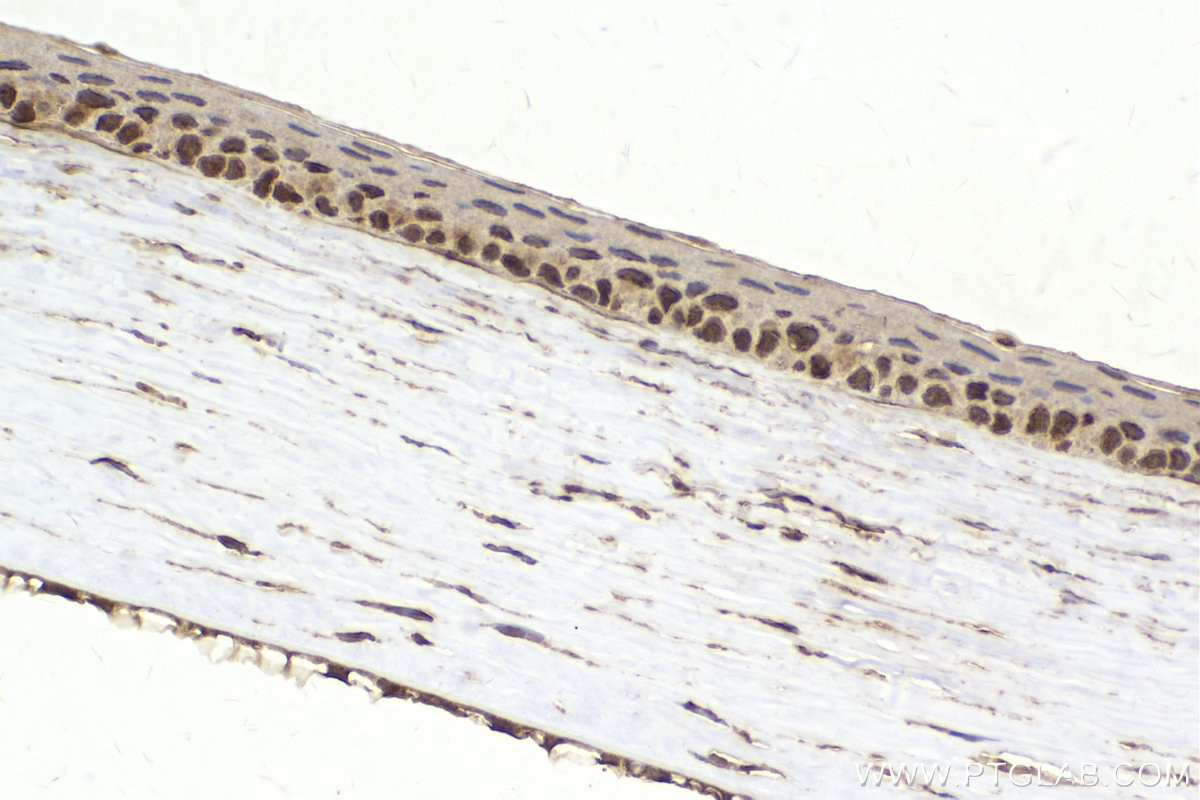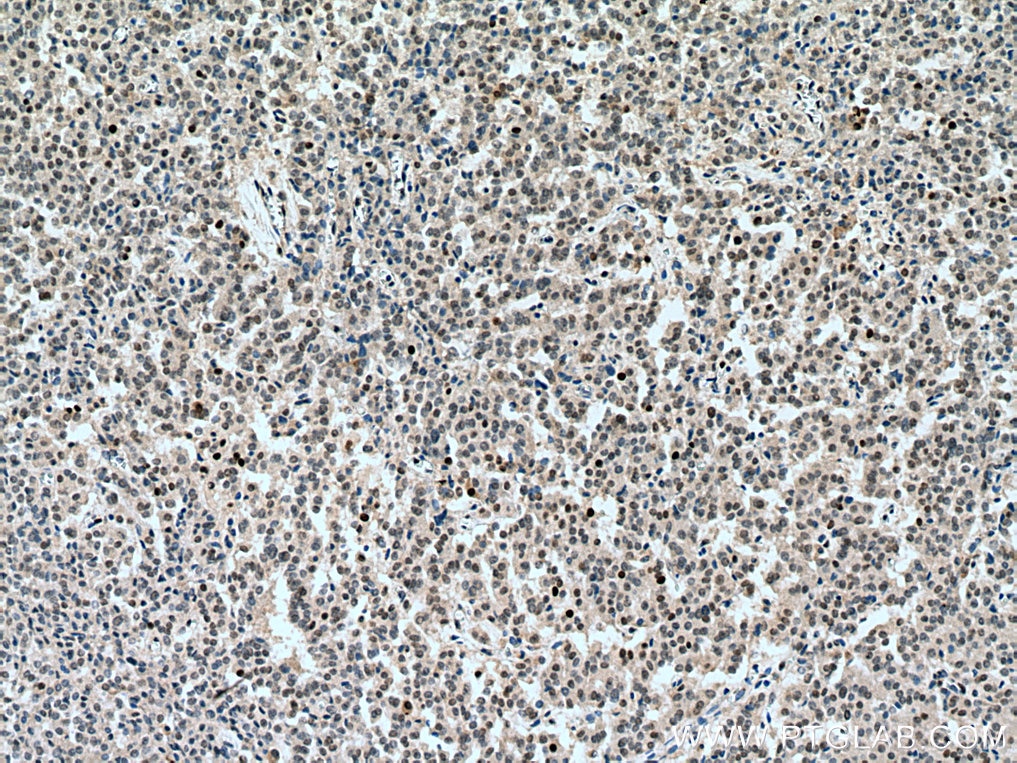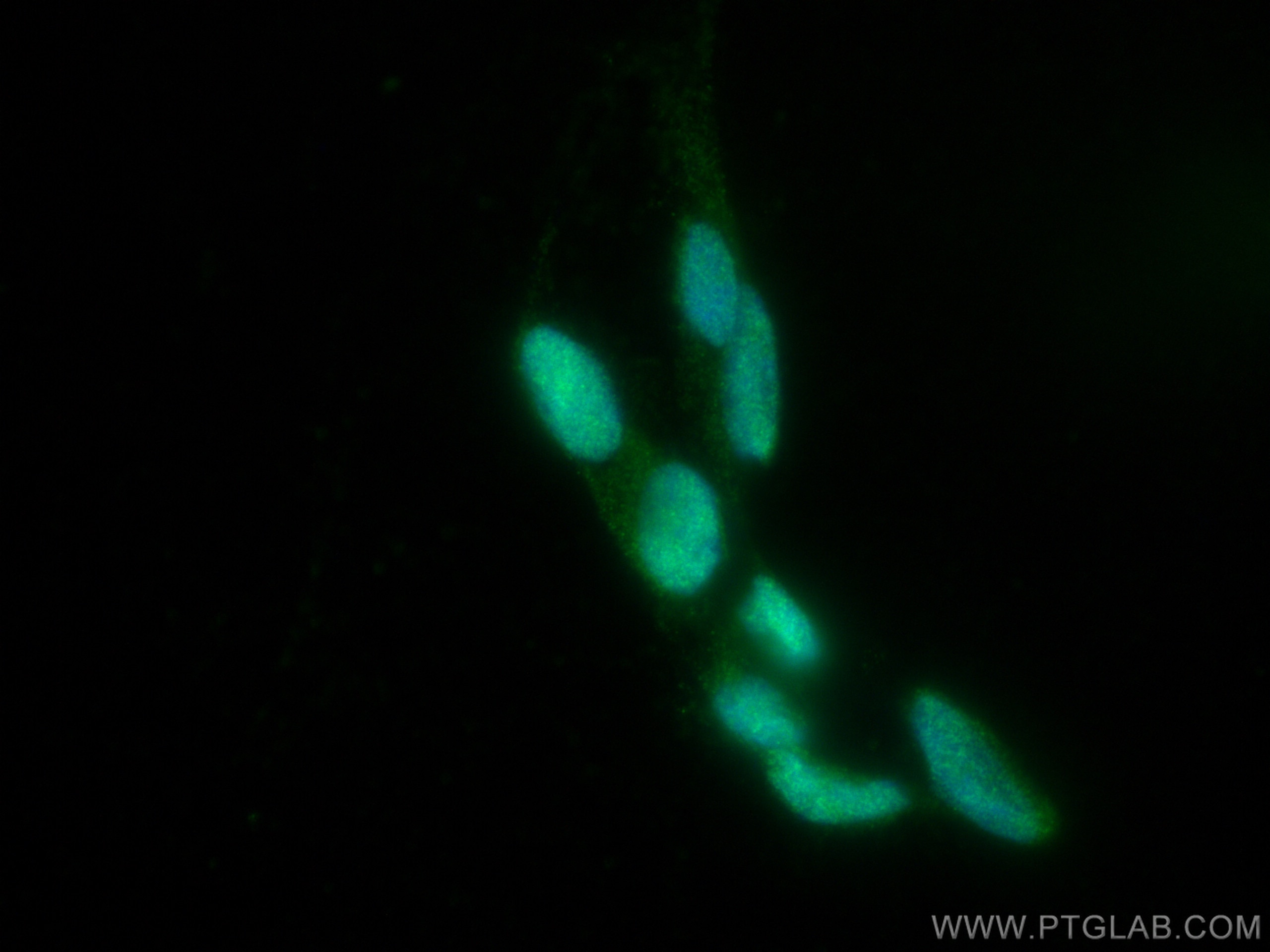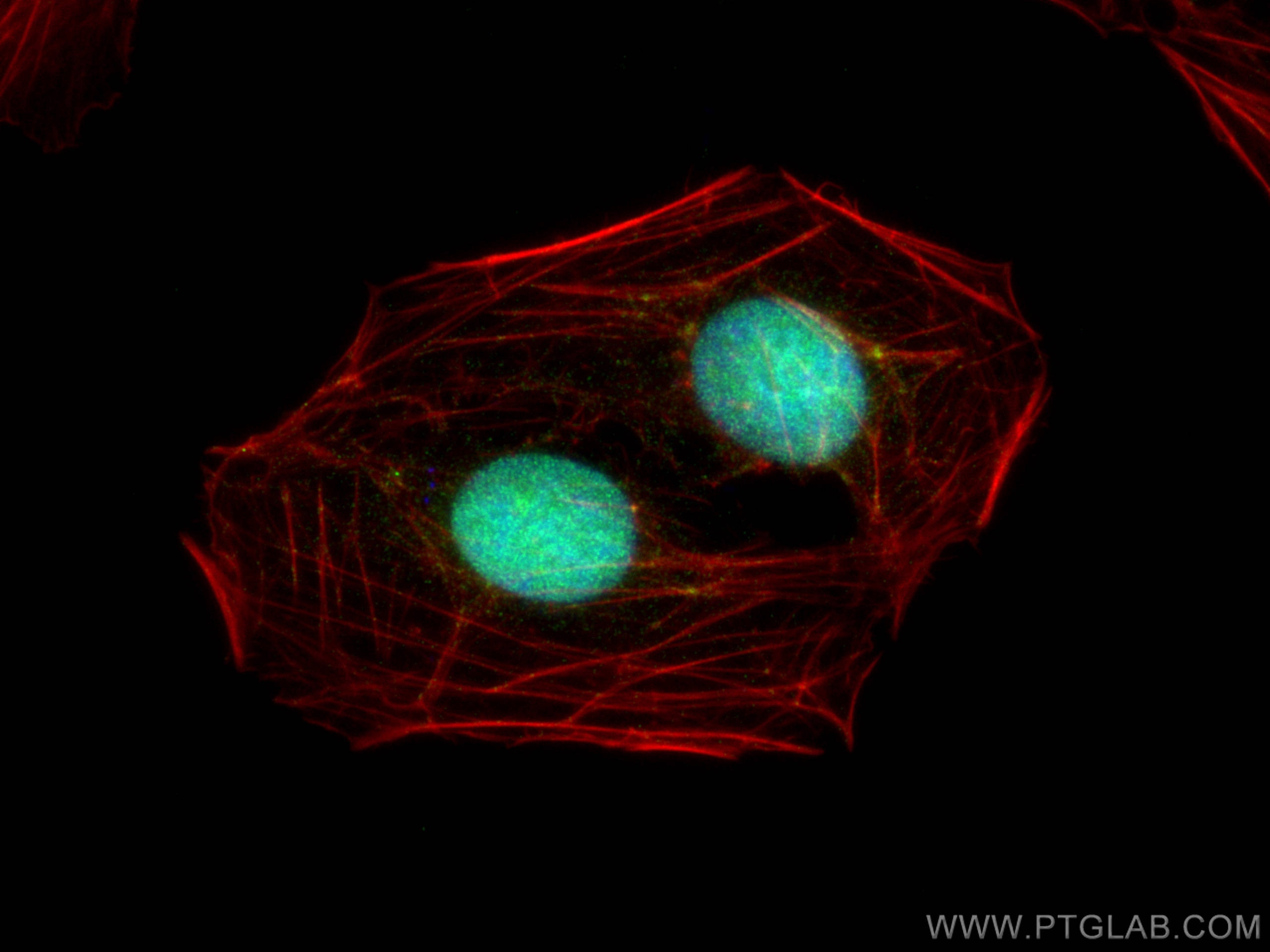- Phare
- Validé par KD/KO
Anticorps Monoclonal anti-RB1
RB1 Monoclonal Antibody for WB, IHC, IF/ICC, ELISA
Hôte / Isotype
Mouse / IgG2a
Réactivité testée
Humain
Applications
WB, IHC, IF/ICC, ELISA
Conjugaison
Non conjugué
CloneNo.
1A2A6
N° de cat : 67521-1-Ig
Synonymes
Galerie de données de validation
Applications testées
| Résultats positifs en WB | cellules Jurkat, cellules HL-60, cellules K-562, cellules MCF-7, cellules TF-1 |
| Résultats positifs en IHC | tissu d'insulinome, tissu oculaire de rat il est suggéré de démasquer l'antigène avec un tampon de TE buffer pH 9.0; (*) À défaut, 'le démasquage de l'antigène peut être 'effectué avec un tampon citrate pH 6,0. |
| Résultats positifs en IF/ICC | cellules SH-SY5Y, cellules U2OS |
Dilution recommandée
| Application | Dilution |
|---|---|
| Western Blot (WB) | WB : 1:1000-1:6000 |
| Immunohistochimie (IHC) | IHC : 1:500-1:2000 |
| Immunofluorescence (IF)/ICC | IF/ICC : 1:200-1:800 |
| It is recommended that this reagent should be titrated in each testing system to obtain optimal results. | |
| Sample-dependent, check data in validation data gallery | |
Applications publiées
| KD/KO | See 1 publications below |
| WB | See 4 publications below |
Informations sur le produit
67521-1-Ig cible RB1 dans les applications de WB, IHC, IF/ICC, ELISA et montre une réactivité avec des échantillons Humain
| Réactivité | Humain |
| Réactivité citée | Humain |
| Hôte / Isotype | Mouse / IgG2a |
| Clonalité | Monoclonal |
| Type | Anticorps |
| Immunogène | RB1 Protéine recombinante Ag22578 |
| Nom complet | retinoblastoma 1 |
| Masse moléculaire calculée | 928 aa, 106 kDa |
| Poids moléculaire observé | 110 kDa |
| Numéro d’acquisition GenBank | BC039060 |
| Symbole du gène | RB1 |
| Identification du gène (NCBI) | 5925 |
| Conjugaison | Non conjugué |
| Forme | Liquide |
| Méthode de purification | Purification par protéine A |
| Tampon de stockage | PBS with 0.02% sodium azide and 50% glycerol |
| Conditions de stockage | Stocker à -20°C. Stable pendant un an après l'expédition. L'aliquotage n'est pas nécessaire pour le stockage à -20oC Les 20ul contiennent 0,1% de BSA. |
Informations générales
RB1, also named as pp110, pRb and p105 Rb, belongs to the retinoblastoma protein (RB) family. It is a key regulator of entry into cell division that acts as a tumor suppressor. RB1 acts as a transcription repressor of E2F1 target genes. The underphosphorylated, active form of RB1 interacts with E2F1 and represses its transcription activity, leading to cell cycle arrest. It is directly involved in heterochromatin formation by maintaining overall chromatin structure and, in particular, that of constitutive heterochromatin by stabilizing histone methylation. It recruits and targets histone methyltransferases SUV39H1, SUV420H1 and SUV420H2, leading to epigenetic transcriptional repression. RB1 controls histone H4 'Lys-20' trimethylation and inhibits the intrinsic kinase activity of TAF1. It mediates transcriptional repression by SMARCA4/BRG1 by recruiting a histone deacetylase (HDAC) complex to the c-FOS promoter. In resting neurons, transcription of the c-FOS promoter is inhibited by BRG1-dependent recruitment of a phospho-RB1-HDAC1 repressor complex. Upon calcium influx, RB1 is dephosphorylated by calcineurin, which leads to release of the repressor complex. In case of viral infections, interactions with SV40 large T antigen, HPV E7 protein or adenovirus E1A protein induce the disassembly of RB1-E2F1 complex thereby disrupting RB1's activity.
Protocole
| Product Specific Protocols | |
|---|---|
| WB protocol for RB1 antibody 67521-1-Ig | Download protocol |
| IHC protocol for RB1 antibody 67521-1-Ig | Download protocol |
| IF protocol for RB1 antibody 67521-1-Ig | Download protocol |
| Standard Protocols | |
|---|---|
| Click here to view our Standard Protocols |
Publications
| Species | Application | Title |
|---|---|---|
Adv Sci (Weinh) Positive Feedback Regulation between KLF5 and XPO1 Promotes Cell Cycle Progression of Basal like Breast Cancer | ||
Environ Toxicol RB1 Mutations Induce Smoking-Related Bladder Cancer by Modulating the Cytochrome P450 Pathway
| ||
Cancer Res CDK4/6 Alters TBK1 Phosphorylation to Inhibit the STING Signaling Pathway in Prostate Cancer | ||
Life (Basel) Investigating the Effects of Chelidonic Acid on Oxidative Stress-Induced Premature Cellular Senescence in Human Skin Fibroblast Cells |
